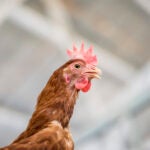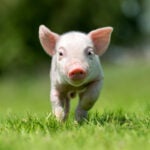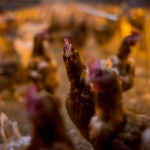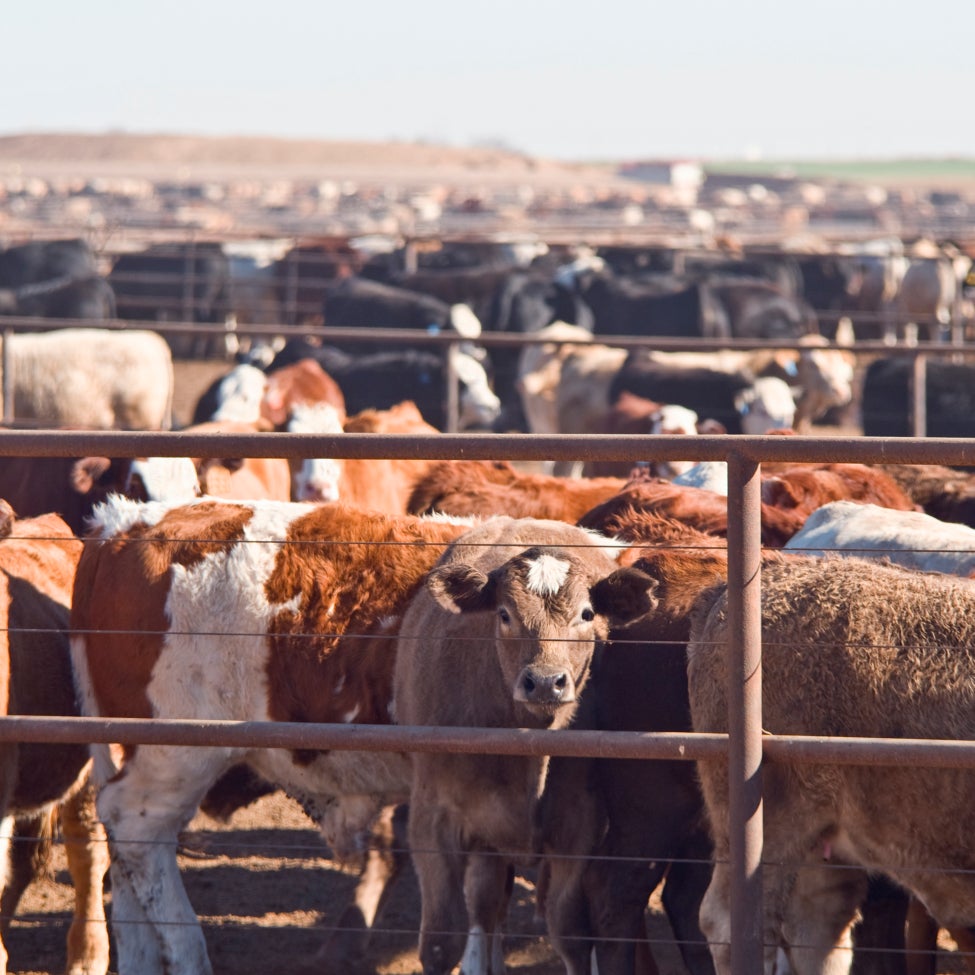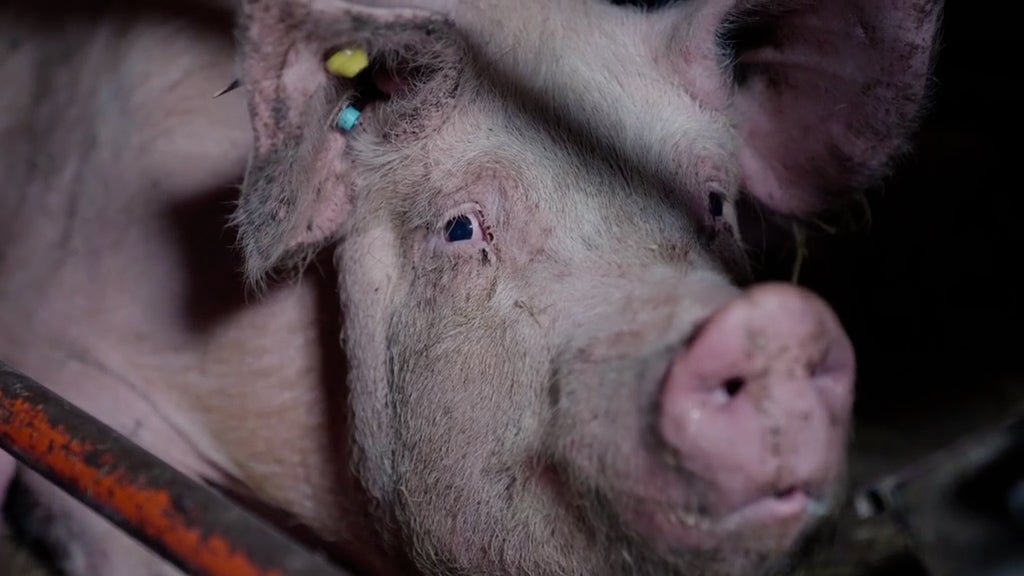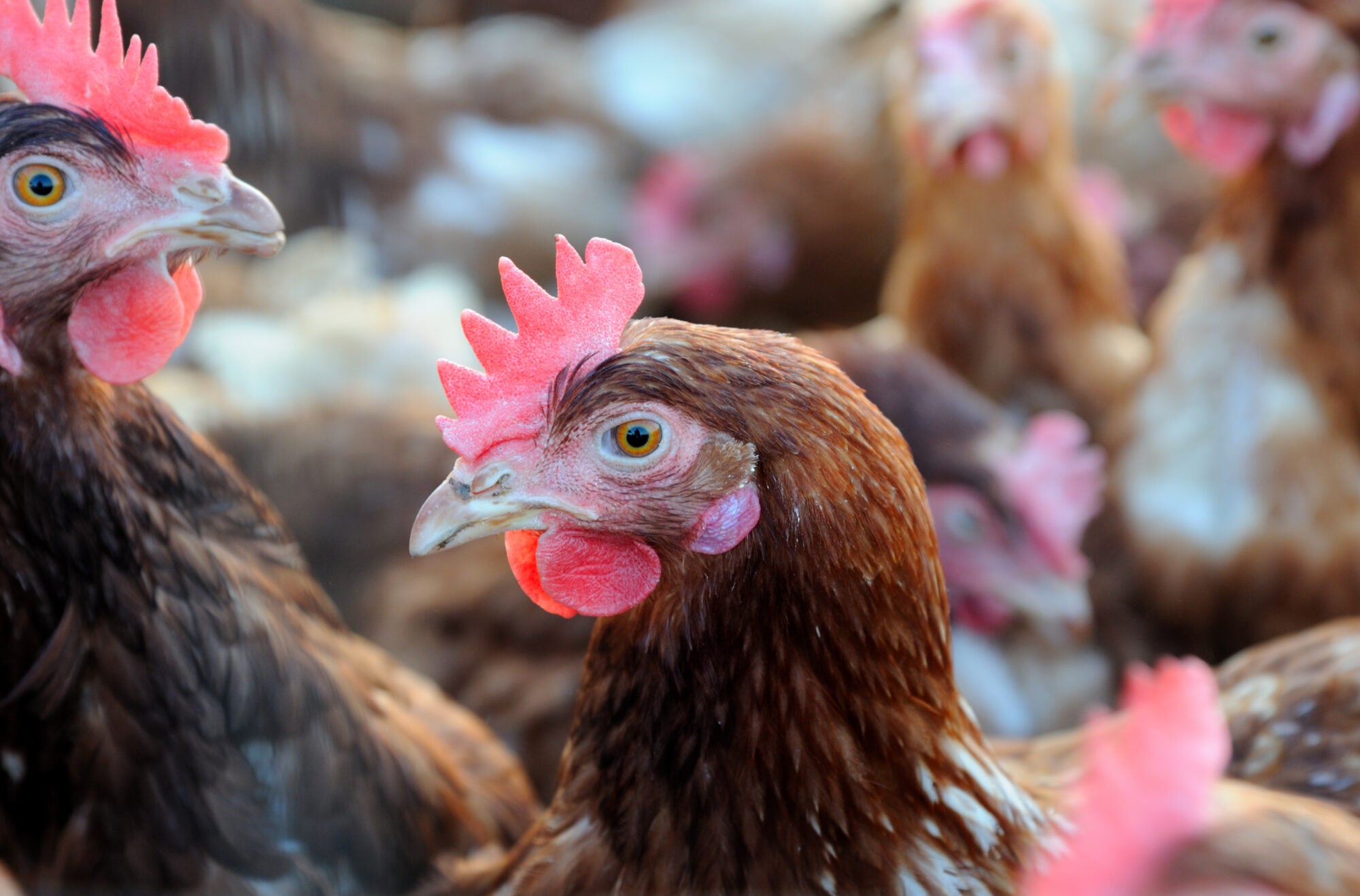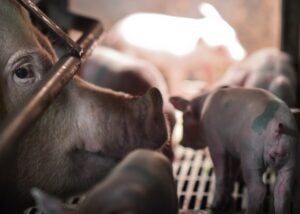
BRUSSELS—European Union policymakers, animal welfare experts, industry representatives and non-governmental organizations gathered today at the European Parliament for a roundtable discussion on the necessity of raising welfare standards for the production of pigs. Animal scientists conveyed the need to end the intensive crate confinement of pigs, and transition to higher welfare systems that meet the inherent welfare needs of these intelligent and social animals.
This debate is extremely timely given the impending delivery of a package of legislative proposals by the European Commission for the revision and expansion of the scope of the existing EU animal welfare legislation. In its response to the European Citizen’s Initiative to End the Cage Age in 2021, the Commission pledged to propose an end to caged confinement for farm animals. Today’s event highlighted the need for them to abide by this important commitment to advancing animal welfare.
Dr Joanna Swabe, senior director of public affairs for Humane Society International/Europe, said:
“At present, more than 140 million pigs are being kept in the EU, the vast majority of which are regrettably still being housed in production systems that fail to adequately meet their complex welfare needs. The science is crystal clear. It is time to end the close confinement of these highly intelligent animals in stalls and crates and begin to respect the integrity of the species and the animals’ behavioral needs. The living environments for pigs need to be enriched, they should be kept in family groups and the practice of mutilating their bodies should be prohibited. The revision of the EU animal welfare legislation is a golden opportunity for politicians, policymakers and the pig industry to get things right and align more accurately with science and the will of European citizens. We strongly urge them to pay heed to the animal welfare scientists and support the Commission’s proposals that aim to ensure that the pigs we keep for food are afforded a dignified existence.”
Maria Noichl MEP for the Socialist and Democratic Group and full member of the European Parliament’s Committee on Agriculture and Rural Development, added:
“It is our responsibility as MEPs to make sure that we fully listen to both citizens and scientists and deliver new animal welfare standards that will give farm animals lives worth living. Of course, we must listen to the legitimate concerns of the animal agriculture industry about the practicalities and costs of transitioning to higher welfare systems. However, these concerns should not be used as an excuse to block progress on achieving progress on animal welfare. Let us instead look at the ways we can help farmers to upgrade or replace their existing housing systems. The new Common Agricultural Policy co-schemes, for example, were established exactly with this kind of goal in mind. We need to stimulate Member States and producers to make full use of existing funding CAP streams and also better incentivize farmers to improve animal welfare, rather than placing obstacles in the way of achieving better welfare for pigs and other farmed animals.”
HSI/Europe’s vision for the future of pig production was presented at this event by animal welfare scientist Dr Heleen van de Weerd, who provided an overview of minimum standards for pig production in the EU:
- An end to close confinement for pigs in stalls or crates.
- The selection of pigs for robustness, includes traits, such as lower prolificacy, good mothering skills, low aggression, and resilience in local conditions.
- The necessity for pig housing to offer variation, with spacious, functional areas for secluded resting and activities, such as foraging and rooting, eating and drinking. Pigs must also have access to a bedded area, with materials, such as straw, for comfort and enrichment.
- Respect for the species’ integrity. This entails keeping pigs in family group systems where sows and their piglets live together. Piglets should also not be mixed and moved as little as possible. Social groups should remain together.
- Litter size must be aligned with sow nursing capacity and the weaning age must more closely approach the natural weaning age.
- An end to unnecessary surgical mutilations. All pigs must have intact bodies (no castration, tail docking, teeth clipping, or ear notching)
- Pig handling must be respectful and pay full regard to species-typical behavior without causing stress to the animals. There must be a culture of care on pig farms with each farm appointing a trained and named animal welfare officer legally responsible for overseeing and ensuring the welfare of the animals on the premises.
Facts:
- In 2020, in its EU Farm to Fork Strategy, the European Commission committed to revising and expanding the scope of the existing body of EU animal welfare legislation to bring it in line with current scientific understandings of animal welfare. The proposals were scheduled to be delivered in the third quarter of 2023.
- Following the successful European Citizens’ Initiative to End the Cage Age, which gathered 1,3 million signatures, in 2021 the European Commission pledged to also deliver a proposal to end caged confinement for animals farmed for food production.
- There is no accessible data with regard to how many pigs are still commercially kept in close confinement systems. It is, however, known that only about 1% of EU pig herds are estimated to be organically raised and thus kept under higher welfare standards with outdoor access, although the data on organic production show that some Member States have a higher share of organic pigs (e.g., Austria, Sweden, Denmark, all with 3% of pigs raised in organic systems).
- Most pigs in Europe live in indoor confinement on industrialized farms where they are unable to display their full range of complex social, foraging, and exploratory behavior. This leads to animal welfare problems, such as tail-biting and aggression. Piglets are routinely castrated and tail-docked without pain-relieving anesthetic. Poor air quality and intensive confinement can also result in other health problems.
ENDS
Media contact: Cassie Bodin-Duval, international coordinator in media relations: cbodinduval@hsi.org ; +32 (0) 469 149 469

